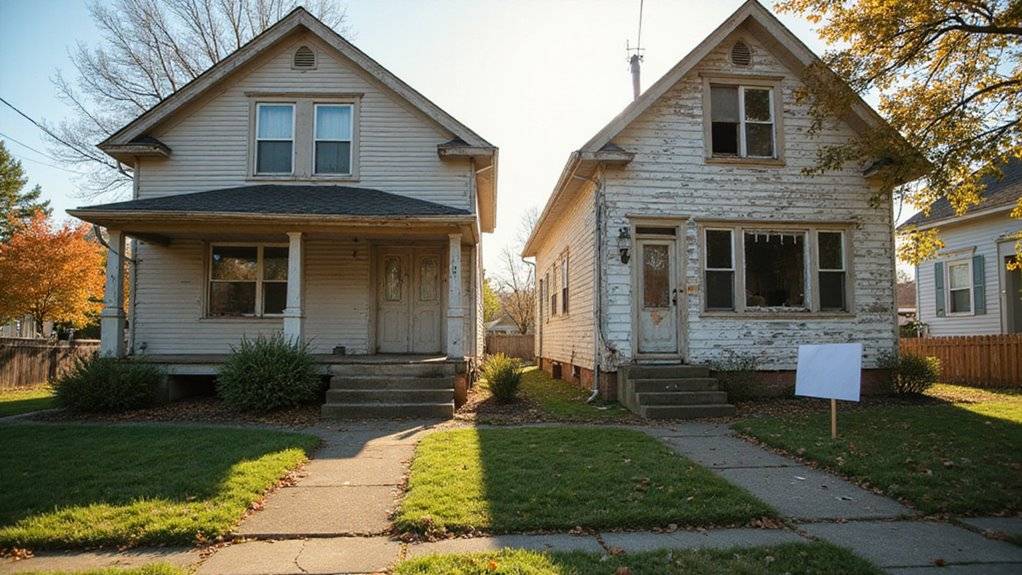Selling a house with code violations can be stressful and confusing. Many homeowners do not realize these homes often attract lower offers. Strict rules and repair requirements can make the process even harder.
Buyers may hesitate or demand big discounts. Sellers face more paperwork and risk legal trouble for missing disclosures. These extra problems can delay or even stop the sale.
Selling a house with code violations is more complex and risky than a traditional sale, but there are ways to succeed. You can make smart choices to avoid big losses or legal headaches.
Understanding your options helps you protect your interests. This blog will guide you through every step to sell your property with code violations and avoid costly mistakes.
Key Takeaways
- Homes with code violations usually sell for less than traditional sales due to repair costs and legal risks.
- Mortgage approval is harder for homes with violations, often requiring cash buyers instead of traditional financing.
- Selling a house with violations takes longer due to extra inspections, legal steps, and repair documentation requirements.
- Disclosure of all known code violations is legally required, unlike some traditional sales where issues may be minor or already resolved.
- As-is sales of homes with violations often attract investors or contractors, while traditional sales appeal to a broader pool of buyers.
Understanding Code Violations in Real Estate
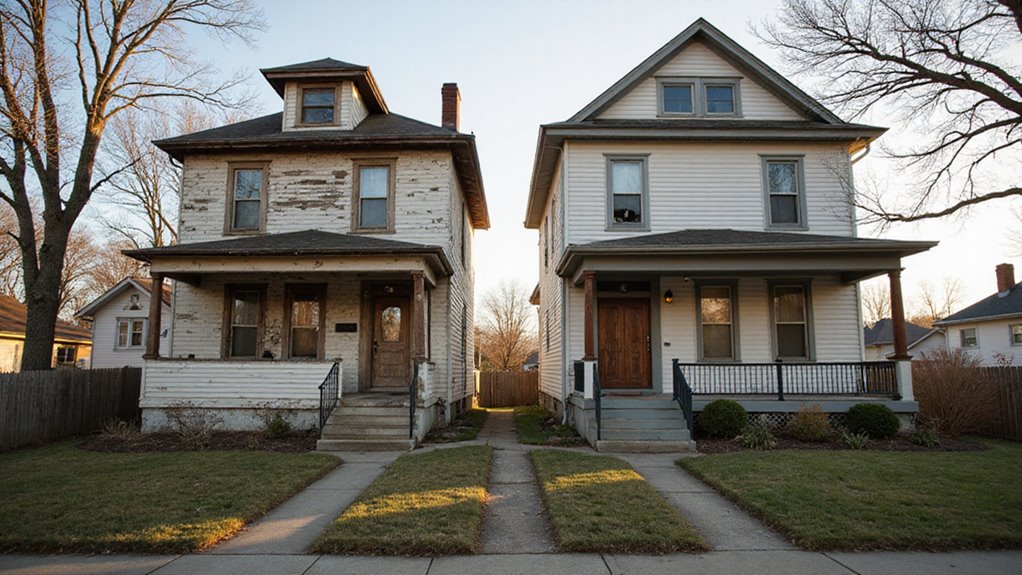
Understanding code violations in real estate is important when selling a house. Code violations can lower your home’s value and delay the sale. If you do not fix these issues, you could face fines or legal problems.
Homeowners must follow local building codes and safety rules. You need to check your property for any code violations before listing it for sale. If you find any, you should fix them as soon as possible. If you plan to sell your primary residence, also be aware that capital gains tax rules may apply if you profit from the sale.
All known violations must be disclosed to buyers as required by law. Disclosure laws, such as the Lead-Based Paint Hazard Reduction Act, must be followed. If you hide violations, you could get into legal trouble later.
Many cities offer grants or tax credits to help fix code violations. If you use these programs, you might save money on repairs. Addressing violations early can also make selling your home easier. Failing to disclose all known issues—such as mold or code violations—may result in legal responsibility and lawsuits for the seller.
Common Types of Code Violations Found in Homes
You’ll often encounter electrical system infractions, such as unpermitted wiring or outdated panels, which violate the National Electrical Code (NEC) and local ordinances. Unauthorized home additions, built without proper permits or inspections, can breach municipal building codes and put your sale at risk under local zoning laws.
Understanding these violations is crucial, as they may require legal remedies or disclosure under state property transfer regulations. Many homeowners facing code violations find relief through sell houses as-is services, which allow them to bypass repair requirements and sell their property quickly without extra expenses.
It’s also important to note that issues like legal disclosure laws can impact the process, as failing to disclose known code violations or hazardous materials—such as asbestos—may result in legal penalties or complicate the sale.
Electrical System Infractions
Electrical system infractions are common and can be dangerous. These violations often appear during a home inspection. They may include old wiring, overloaded circuits, or missing GFCI outlets.
The National Electrical Code (NEC) sets rules to prevent fires and electrical shocks. Homeowners must follow these rules for safety. If a home has knob-and-tube wiring or unapproved changes, it can cause serious problems.
Some cities require electrical upgrades before selling a home. Sellers who hide electrical issues could face legal trouble or extra costs. Fixing these problems early can help the sale go smoothly and prevent future disputes.
Unauthorized Home Additions
Unauthorized home additions are changes to your house made without permits. These additions often break local building rules. If you skip permits, you risk legal and financial problems.
Local laws require permits for projects like new rooms or bathrooms. If you build without approval, you may face fines or stop-work orders. Sometimes, officials may force you to remove unauthorized changes.
If you try to sell your home, buyers and lenders will want proof of permits. Missing permits can delay or cancel the sale. You might need to fix or update the work to meet current codes.
Initial Steps When You Discover Code Issues
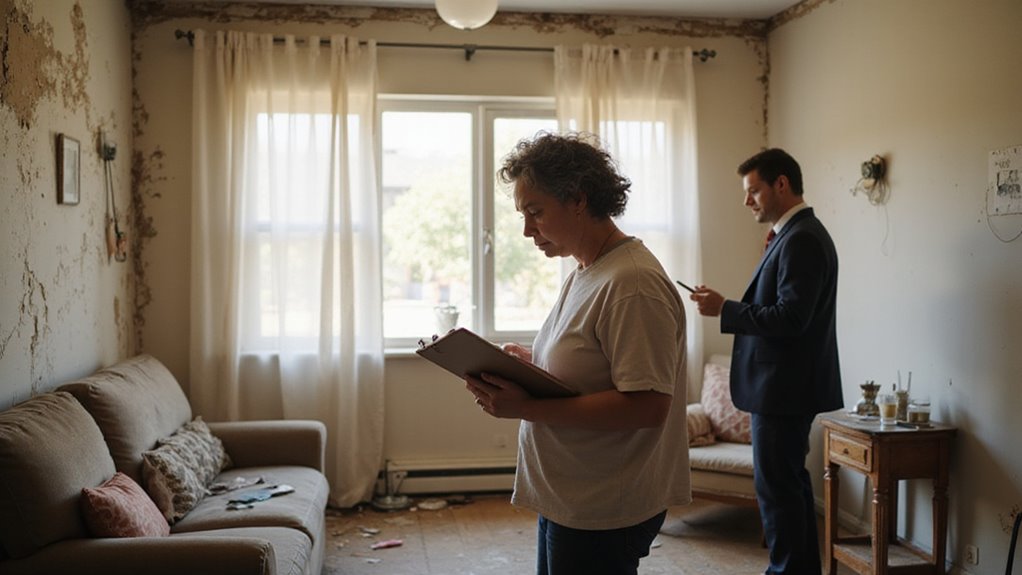
Once you uncover code violations, you must first assess the severity of each issue under your local building codes and ordinances. Next, gather detailed repair estimates from licensed contractors to understand your financial exposure and potential disclosure obligations under statutes like the Residential Lead-Based Paint Hazard Reduction Act (42 U.S.C. § 4852d).
These steps ensure you’re prepared to make informed decisions and maintain compliance throughout the sale process. If your property is under a land contract, carefully review your contract terms for any restrictions or requirements before proceeding with repairs or a sale.
For homeowners seeking stress-free selling, working with trusted local buyers can offer a fast, effortless alternative to navigating costly repairs and traditional listing hurdles.
Assessing Violation Severity
Assessing violation severity means figuring out how serious each code issue is. Local building codes usually sort violations as minor, moderate, or severe. This helps you know your legal duties and what buyers may think.
Check your city or county codes to see how they rate each type of problem. Write down what each violation is and if it risks safety, structure, or looks. If you are unsure, ask a licensed inspector or lawyer to explain the rules.
Knowing how serious each violation is will help you make smart choices when selling your property.
Gathering Repair Estimates
Sellers should gather repair estimates as soon as they find code violations. Quick action helps you understand the costs and meet your legal duties. Accurate estimates are important for setting the right price and avoiding future disagreements.
Licensed contractors can give clear bids for needed repairs. These bids give you a strong base for talks with buyers. If you skip this step, you might face legal or financial trouble later.
Repair estimates may affect your property taxes. Cities could raise your home’s value if repairs are ignored, leading to higher taxes. If neighbors see problems left unfixed, local property values can also drop.
Detailed records show that you are handling issues honestly and following local rules. Good paperwork can also reassure buyers and city officials. If you need to sell fast, having estimates ready saves time.
Disclosure Requirements for Sellers
Legal obligations require home sellers to disclose any code violations. State and local laws make these disclosures mandatory before listing a home. If you fail to disclose, you risk legal problems such as lawsuits.
Sellers must use forms like the Transfer Disclosure Statement in California. Other states have similar forms for this purpose. These forms ensure buyers receive all important information. If you are selling to a Missouri home buyer, you may find that they are familiar with handling disclosures for properties in any condition.
You should list all known code violations in writing. If you have any official notices or fines, provide copies to the buyer. Disclose any past repairs or ongoing enforcement actions related to violations.
Accurate disclosures help protect you from legal trouble. If you are honest, buyers are more likely to trust you. Meeting these requirements is essential for a smooth sale. In many cases, as-is home sales require even more careful disclosure since buyers expect to know all defects upfront before making an offer.
The Inspection Process: Traditional vs. Code-Violated Homes
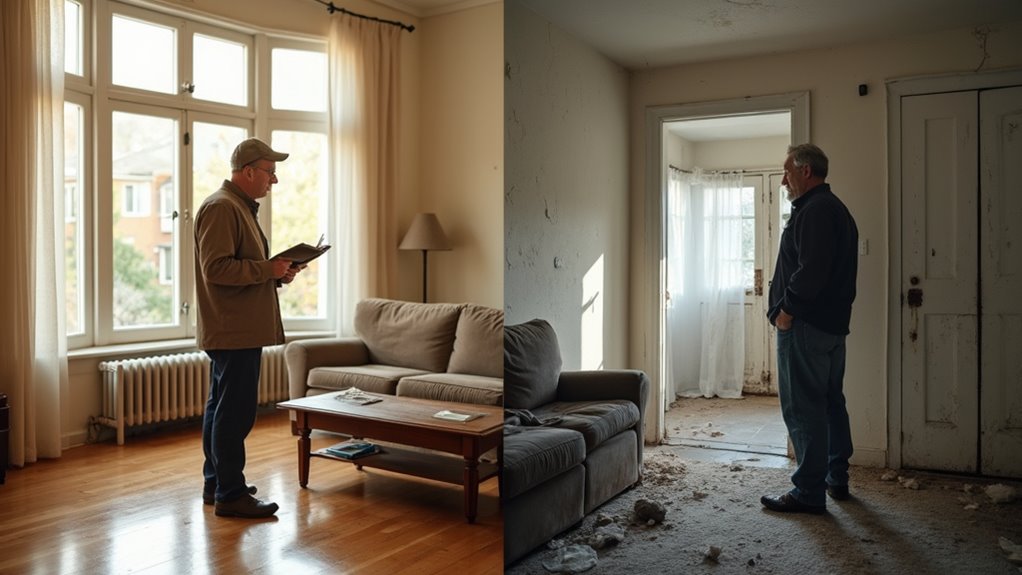
Traditional home inspections check the home’s general condition. Inspectors look for problems with structure, plumbing, and safety. They usually do not check if the home meets local building codes unless there are visible issues. If the home has code violations, the inspection process changes.
Inspectors will look for unapproved renovations or old wiring that breaks local rules. They will write down problems and refer to city codes or the International Residential Code (IRC). Code violations are serious because they can create safety risks. In cases where multiple owners are involved, navigating the inspection and repairs can become more complicated due to differing responsibilities and agreements.
Local laws may require repairs or fines if these issues are found. Sellers must fix or disclose these problems, or buyers and lenders might not move forward with the sale. Unlike traditional sales, selling houses as-is to local buyers can help homeowners avoid making costly repairs for code violations, as these buyers purchase homes in any condition.
Impact on Home Value and Pricing Strategies
Code violations usually lower a home’s value. Buyers consider repair costs and possible legal risks when making offers. You should expect to adjust your price to reflect these factors.
Appraisers and lenders will notice any code issues. If violations exist, financing options may be limited. Homes with code problems often need to be priced below similar, code-compliant properties. Working with local home buyers familiar with the O’Fallon market can provide added flexibility, as they often purchase homes as-is and handle all closing costs.
You should check recent sales of homes with similar violations for guidance. If unsure, consult a real estate attorney to follow disclosure laws. Always include estimated repair costs when setting your price.
If you want to avoid the challenges of traditional sales with code violations, consider the benefits of selling for cash directly to a local buyer who can handle repairs and closing costs.
Buyer Pools: Who Purchases Homes With Code Violations?
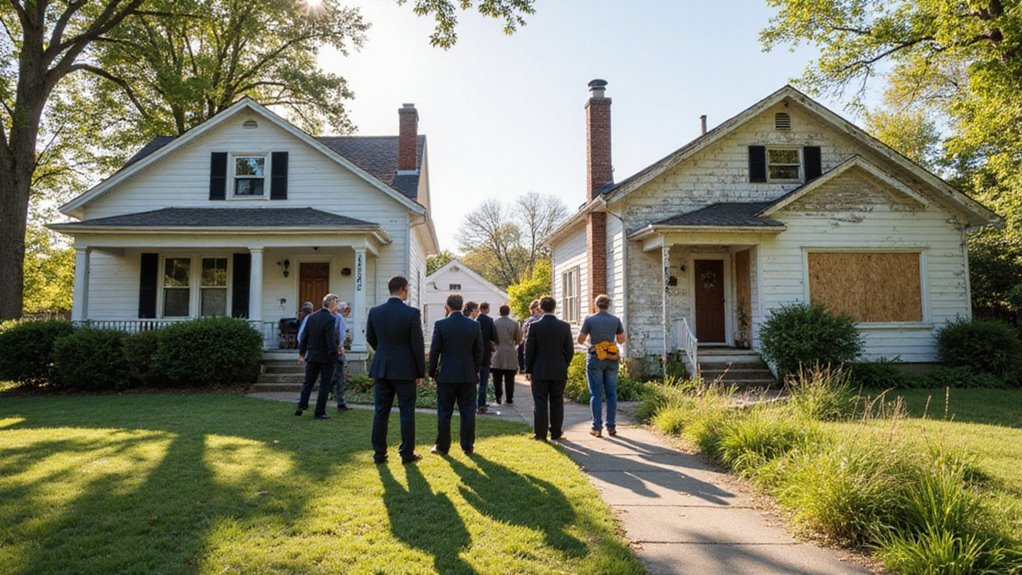
Homes with code violations are usually sold to buyers who handle repairs. These include real estate investors, house flippers, and contractors. Traditional homebuyers often avoid these homes.
Investors and contractors know how to fix code issues and follow local laws. They check for problems like lead paint or asbestos. If code problems are big, these buyers will factor repair costs into their offers. Some sellers appreciate the stress-free selling process offered by local home buyers who purchase properties as-is.
Zoning rules and legal requirements can affect who buys your home. If your house has many violations, look for buyers who understand local and state codes. This approach can help you sell faster and avoid legal trouble.
Many sellers in Florissant choose to work with cash home buyers because they offer fast, as-is purchases without the hassle of repairs or traditional listing fees.
Financing Challenges and Cash Buyers
You’ll encounter significant obstacles securing traditional mortgage approval when your property has unresolved code violations, as lenders often require compliance with local housing codes under regulations like FHA 4000.1. Cash buyers, however, aren’t subject to these underwriting requirements and can move forward without lender-mandated repairs or inspections.
Understanding the legal distinction between financed and cash transactions is crucial to steering through inspection contingencies and closing efficiently. Homes with issues such as foundation problems often face reduced property values and additional hurdles during the financing process.
Mortgage Approval Roadblocks
Mortgage lenders usually reject loans for homes with code violations. These issues can block mortgage approval or cause major delays. Lenders need properties to meet basic safety and maintenance rules.
If a home has violations, it may not pass appraisal. This can make lenders refuse to finance the purchase. Major loan programs like FHA and VA have strict property standards.
Unresolved code issues may also create legal problems for sellers. These problems can stop the ownership transfer or complicate the loan process. If violations are fixed, approval becomes more likely.
Cash Offer Advantages
Cash offers make selling a house with code violations easier. Cash buyers do not need mortgage approval or lender inspections. This speeds up the sale process.
Sellers can skip repairs and home staging since cash buyers often purchase properties as-is. If a home has code violations, cash buyers may still move forward if the price is right. Sellers must still disclose known violations according to federal and state laws.
If you choose a cash sale, you can often close in days instead of months. This method is much faster than traditional sales. Cash buyers usually accept more risk for a quicker deal.
Inspection Hurdles Explained
Inspection hurdles happen when a home does not follow local building codes. Lenders will not approve a mortgage if a house has code violations. Sellers must fix these problems before selling with traditional financing.
If a home fails inspection, the sale may be delayed. Sellers must disclose any known violations to avoid legal issues. Local laws may require repairs before closing.
Cash buyers can skip many inspection and financing hurdles. They may still face penalties if code violations remain after the sale. Unresolved violations can lead to fines or legal action from the city.
Negotiating Repairs and Credits
Negotiating repairs and credits is a key part of selling a home with code violations. Buyers may ask you to fix problems before closing.
You can also offer a price reduction or cash credit for repairs after the sale. When selling a home with code violations, you can fix issues or offer a price reduction or repair credit to buyers.
The contract must state who will fix the code issues. If it does not, disputes can happen later. Always write down any agreement about repairs or credits.
Some towns or cities require you to fix certain violations before selling. Check local rules before making promises to the buyer. If you are unsure, ask your real estate agent or attorney for advice.
Each repair request can affect your profit. You should decide if you want to fix the issue or offer a credit. Make sure your choice follows the law and protects your interests.
Legal Risks and Liability Concerns
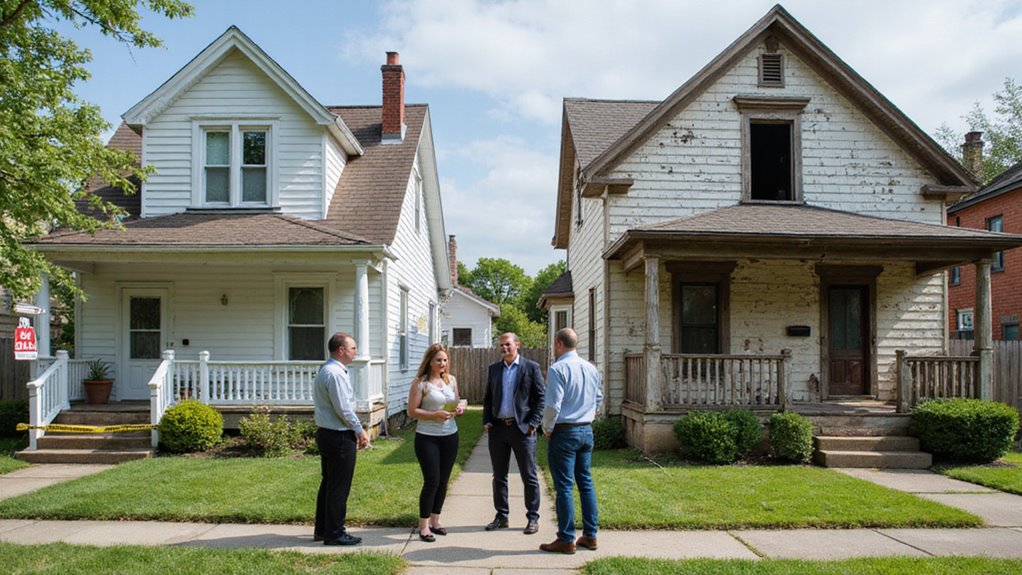
You face significant legal risks if you sell a house with undisclosed code violations, including potential lawsuits from buyers under state real estate statutes.
Most states, such as California (Cal. Civ. Code § 1102), require you to disclose known defects, and failing to do so can trigger costly liability. Understanding your disclosure obligations is essential to protect yourself from future legal claims.
Potential for Buyer Lawsuits
Selling a house with code violations can lead to buyer lawsuits. If you do not fix zoning or permit problems, buyers may sue. Laws often protect buyers if you hide or ignore these issues.
If buyers prove you knew about violations, courts may side with them. Some laws, like the URLTA, strengthen buyer rights. You could be ordered to fix problems even after the sale.
Buyers might claim money for repairs or lower property value. Courts may cancel the sale and make you pay extra costs. Legal fees can quickly become expensive, reducing any benefit from selling.
Disclosure Requirements Impact
Disclosure requirements affect sellers by making them legally responsible for sharing known code violations. If you do not disclose these issues, you could face penalties or even lose the sale. Laws like California Civil Code §1102 require written statements about any problems.
Buyers have the right to know about property violations before purchase. If you hide information, buyers may cancel deals or ask for damages. This can lead to lawsuits or contract cancellations.
Undisclosed violations often lower property values or force new price talks. Full disclosure protects you from legal problems and builds trust with buyers. Meeting these rules helps your sale go smoothly and legally.
Timeline Differences in the Selling Process
Selling a property with code violations usually takes longer than a normal sale. The process slows down because of extra legal steps and inspections. Buyers and officials need proof that problems are fixed before closing.
Extra legal steps and inspections make selling a property with code violations a slower, more complicated process than a typical home sale.
Title companies may ask for documents showing the property follows city rules. Lenders might refuse loans if violations affect the home’s value or safety. These steps add extra time to the sale.
If buyers know about violations, they may ask for repairs or a lower price. City rules can set deadlines for fixing issues. Delays may continue if repairs take longer than expected.
Code violations can also change property taxes and affect your ability to bargain. Buyers may look at neighborhood trends before deciding. If you meet all requirements quickly, you can shorten some delays.
Marketing a Property With Code Violations
Marketing a property with code violations requires a clear and honest approach. Buyers need to know about any code issues before making decisions. Disclosing violations is required by law and helps build trust with potential buyers.
Home staging can show the best features of the property. It also helps reduce focus on areas with problems. If you use staging, the presentation must be truthful.
Virtual tours let buyers view the home remotely. This attracts serious buyers and avoids unnecessary visits. All images and videos must show the true condition of the property.
You must clearly list all code violations in your marketing materials. If repairs are possible or needed, explain this as well. Always check local rules for required disclosures.
Targeted ads can help reach investors or buyers looking for fixer-uppers. These ads must be honest and not hide any issues. Highlighting the property’s value can attract those seeking a deal, but avoid making false claims.
Working With Real Estate Agents Versus Selling Directly
Selling a house with code violations can be difficult. You must choose between using a real estate agent or selling it yourself. Each option has its own pros and cons.
Selling a house with code violations is challenging, and you’ll need to decide whether to use an agent or sell it yourself.
A real estate agent understands local prices and markets your home well. Agents know the legal rules for disclosing code violations. If you want legal protection and expert advice, consider hiring an agent.
Selling directly gives you more control over the process. You can talk to buyers willing to accept code issues, often for cash. If you need a fast sale, selling by yourself may be better.
You should weigh speed, price, and legal risks before deciding. If you want the best price, an agent may help. If you want a quick and simple sale, selling directly might work.
Weighing the Costs and Benefits of Repairs
Code violations can lower your home’s value and make it harder to sell. Repairs may be worth it if they boost your sale price more than they cost. Fines for uncorrected issues can also affect your decision.
You should compare repair costs to your possible profit from selling. Local laws, like Section 125.69, Florida Statutes, may fine owners for not fixing violations. These extra costs can add up quickly.
Buyers in wealthier neighborhoods may expect all repairs to be done. Investors in growing areas might overlook small problems. Repairs could attract more buyers and a better price, but selling as-is might save time and money.
Conclusion
If you are selling a house with code violations, you may face more challenges than in a traditional sale. Buyers expect honest disclosure, and failing to provide it could lead to legal problems. If you handle repairs and paperwork carefully, you can reduce risks and improve your results.
If you want to avoid long delays and extra costs, you could consider a cash sale. We buy houses for cash, even if they have code violations or need repairs. This option can help you sell quickly and with less hassle.
If you want a simple and fast solution, we at Freedom Path Investors are here to help. We can make you a fair cash offer and guide you through the process. Contact us today to see how we can help you move forward.

